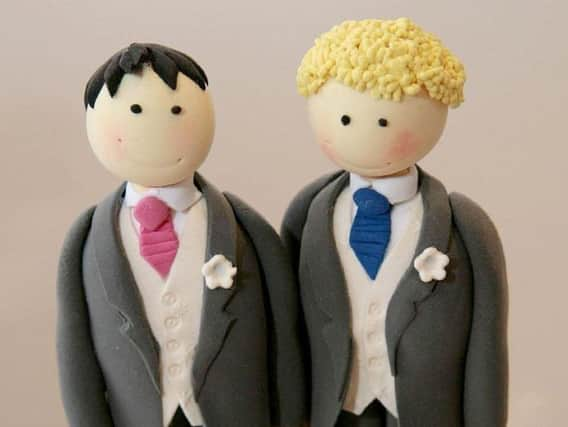Dramatic fall in people having civil partnerships in Lancashire


In the four years before the Same-Sex Marriage Act came into force in March 2014, there were 316 civil partnerships formed in the area.
From 2014 to 2017, that number fell to 56.
Of the 56 civil partnerships formed during that time, 34 were male couples and 22 were female couples.
Advertisement
Hide AdAdvertisement
Hide AdCivil partnerships have fallen out of favour across the whole of England and Wales. Almost 24,000 couples entered civil partnerships between 2010-13, falling to just over 4,000 in the following four years.
A civil partnership is a legally recognised relationship which guarantees same-sex couples the same rights as married couples.
LGBT charity Stonewall has said that despite its dwindling popularity, the civil partnership is still an important institution and shouldn't be abolished.
Stonewall campaigns, policy and research director Paul Twocock said: "The introduction of civil partnerships in 2005 was a huge milestone for LGBT equality.
Advertisement
Hide AdAdvertisement
Hide Ad"For the first time, same-sex couples could have their relationships legally recognised and secure the same benefits as married couples of different sexes."
"Many thousands of same-sex couples have also decided not to convert their civil partnership into a marriage," he added.
Family justice organisation Resolution said that declining numbers could be a reflection that younger couples are now more likely to form cohabiting families rather than legally recognised relationships.
Resolution's Graeme Fraser said: "It's entirely possible that same-sex couples nowadays also feel civil partnerships are, to an extent, discriminatory.
Advertisement
Hide AdAdvertisement
Hide Ad"In addition to reviewing the status of civil partnerships, the Government must prioritise the lack of awareness and lack of protections for all types of modern families - to truly reflect changes in how couples choose to live together."
Currently, only same-sex couples can enter into civil partnerships - but in June 2018, the Supreme Court ruled that this was incompatible with the European Convention on Human Rights.
The court allowed heterosexual couple Rebecca Steinfeld and Charles Keidan to have a civil partnership instead of a marriage, after they argued that the law was discriminatory.
A Government Equalities Office spokesman said: "The Government is very aware of its legal obligations, and we recognise the sensitive and personal issues involved in this case. We are studying the court's judgement carefully, and will respond in due course."
Advertisement
Hide AdAdvertisement
Hide AdLast year in England and Wales there were 908 new civil partnerships - a 2% increase on the previous year.
Two-thirds of those partnerships were between men, and more than half of the couples were aged over 50.